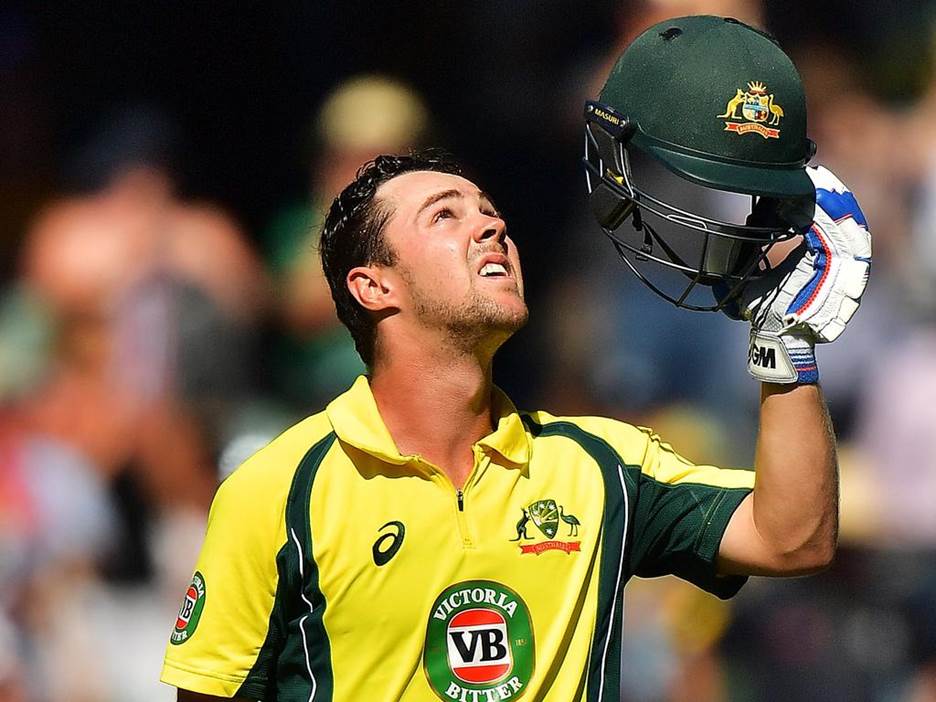
Head is Australian cricket’s newest hero. As extraordinary as his on-field deeds may seem, there is an element of the everyday man in the boy from Adelaide’s northern suburbs - CODE Sports
The Rise of Travis Head
By Andrew Wu
“Mum, I want to try cricket.”
“Mum, I want to try cricket.”
“Mum, I want to try cricket.”
These were the words ringing in Ann Head’s ears every summer as she drove her son Travis past the local cricket club on the way to indoor soccer. Invariably, there’d be kids either playing cricket or training, and he wanted in.
Fed up with her son’s nagging, Ann stopped in so he could have a hit, hoping he would be told he was too little – and that would be the end of that. The last thing she needed was another activity on top of soccer, football and athletics.
“I’d had enough of him in my ear,” Ann recalled this week. “Travis is not a very big child, so I pulled into the car park, out we go.
“I wanted to take him there and for them to tell him he’s too small, come back next year.
Instead, her son was put through a net session. Ordinarily, the odds would have been stacked in Ann’s favor. Her son was only six, and trying out for an under-11 side.
“We put him in the nets, and they came back and said ‘he’ll do perfectly well, he can hold his own, he’ll be alright’.
“I said ‘OK, thank you very much, now I have Saturday morning cricket, and Sunday morning athletics’.”
Australia owes a debt of gratitude to Ann Head, whose wide-eyed sports-loving son with what the French would describe as the joie de vivre became the toast of the nation this week after bringing down the powerhouse of the modern game, India, to deliver the country a record sixth men’s World Cup.
Head is Australian cricket’s newest hero. As extraordinary as his on-field deeds may seem, there is an element of the everyday man in the boy from Adelaide’s northern suburbs.
Yes, he has a $3 million home in Adelaide’s foothills, but fans can readily identify with his handlebar moustache, heavy hitting and love of a good time. The vigor with which he has celebrated hasn’t hurt either, nor too Mitch Marsh’s quip Head would struggle to recover in time to play in the first Twenty20. He missed the game.
“To tell you the truth, I haven’t seen my son drunk,” his mother said. “Now the whole world has seen him drunk on social media.”
Every club cricketer in the land would know of a teammate still yearning over a beer in their whites the morning after a flag, or in Head’s case the 2021-22 Ashes when he was booted off a rooftop bar after an all-night session.
He’s grateful too. When home, he often takes time out to support his local club, Tea Tree Gully, and mix with starstruck younger players, grateful for the club’s nurturing of him as a boy. Former coaches and teammates admire his humility and respect he shows for his roots.
Once when the Bulls had a first-grade bye, Head, by then South Australia’s captain, famously turned out on a matted pitch for another of his grassroots clubs, South Gawler. At a Bulls past players’ day last season, Head made the 40-minute drive from home to visit before an Adelaide Strikers game later that evening.
“He came into the change rooms and introduced himself to the younger guys playing,” Head’s first captain at first grade, Matt Weaver, said. “They’re in awe of Trav being there.”
As a kid, Head played soccer (indoor and outdoor) and football but cricket was his love; a passion that started, as many in his generation did, watching the likes of Ricky Ponting and Adam Gilchrist. In his first game for the Craigmore Cricket Club, he didn’t bat or bowl, and fielded the ball only once.
“The smile on his face, I couldn’t believe it,” Ann said. “He was just ecstatic.”
Said his father Simon: “It was the best day of his life.”
The runs soon came. At age 10, he had caught the eye of no lesser judge than former Test spinner Peter Sleep from the Tea Tree Gully Cricket Club, which fields a team in Adelaide’s grade competition.
Sleep coached Head through his teenage years until he broke into state ranks as an 18-year-old. Nicknamed “Sounda″, Sleep carved out a respectable 14-Test career as a leg-spinning all-rounder, mainly in the 1980s, but that may not have been his most important contribution to Australian cricket. He was the coach who advised Head to give up the gloves.
“I told him, I reckon you should give away the wicketkeeping and take up batting because there was only one spot for a wicketkeeper and six spots for the batting,” Sleep said. - theage

